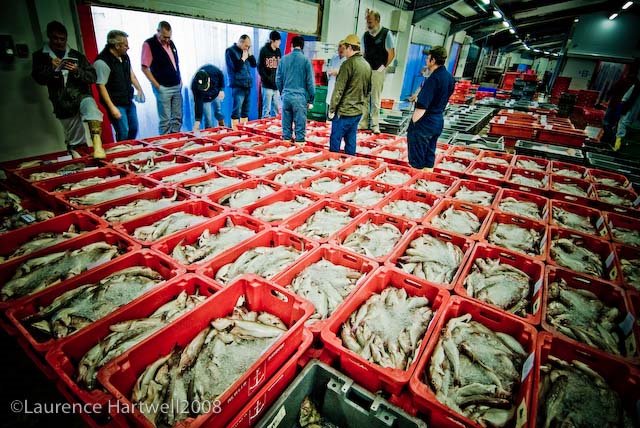Not all vessels capsize and sink when they are full of water - in this instance the skipper and crew were all able to make it to aonther vessel safely.
Here is a report at the time:
On Monday, May 7, 2007 to 3:50 p.m., CROSS CORSEN was alerted by the trawler "Christda II" as "Gavroche" (a 19-meter trawler registered in Guilvinec, on board were 5 crew members), the engine compartment was flooded while they were about 70 kilometers west of Conquet.
The "Christda II" immediately went to assist the "Gavroche". Four crew members were evacuated on the "Christda II" while the skipper of the trawler "Gavroche" remained on board to try to control the waterway.
At the same time, "Latouche Treville" Commander of the Navy was contacted by order of the Marine Operations Centre (COM Brest), it then implements its Lynx helicopter on board with a plunger and a motor pump.
With the arrival of the helicopter in the area, due to the impossibility of the ingress of water, the skipper of the trawler was removed with the help of divers from the helicopter on the "Christda II" remained close.
Shortly before 21 h00 May 7, the trawler "Gavroche" sank in one hundred meters of water.
Urgent Notice to Mariners was issued to indicate the position of the wreck.
The "Christda II" immediately went to assist the "Gavroche". Four crew members were evacuated on the "Christda II" while the skipper of the trawler "Gavroche" remained on board to try to control the waterway.
At the same time, "Latouche Treville" Commander of the Navy was contacted by order of the Marine Operations Centre (COM Brest), it then implements its Lynx helicopter on board with a plunger and a motor pump.
With the arrival of the helicopter in the area, due to the impossibility of the ingress of water, the skipper of the trawler was removed with the help of divers from the helicopter on the "Christda II" remained close.
Shortly before 21 h00 May 7, the trawler "Gavroche" sank in one hundred meters of water.
Urgent Notice to Mariners was issued to indicate the position of the wreck.




